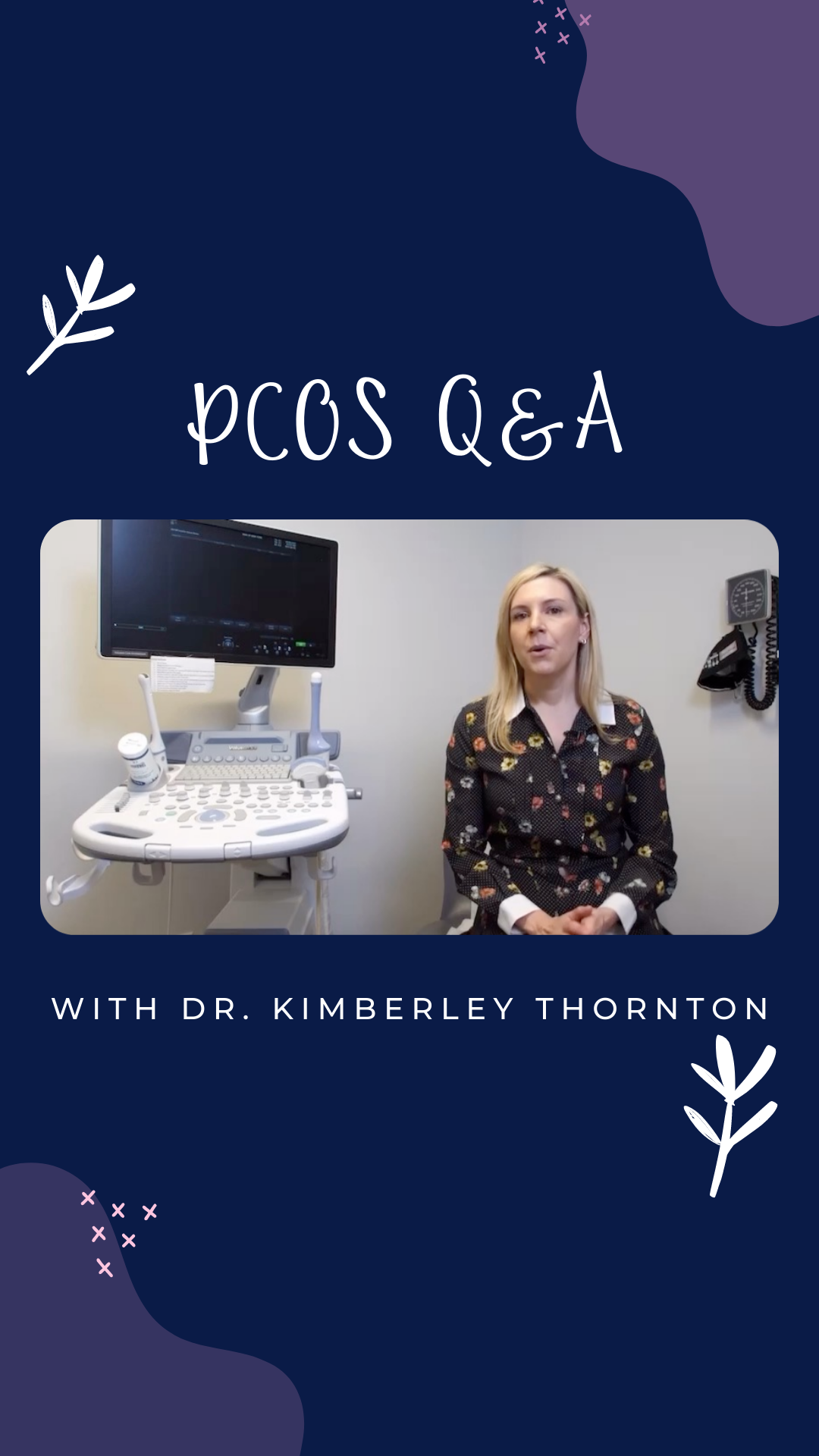How PCOS Can Affect Your Fertility

Polycystic ovarian syndrome (PCOS) is one of the most common gynecological disorders and is estimated to impact 6-15% of women. Individuals with this disorder often suffer from irregular menstrual cycles, elevated male hormones called androgens which can cause excessive hair growth on the face or chest as well as acne, and polycystic appearing ovaries on sonogram.
The name polycystic ovarian syndrome can be misleading. Individuals with this disorder do not actually have a lot of pathological cysts on their ovaries that need surgical removal as the name seems to implicate. When we say someone has polycystic ovaries we actually mean that they have a lot of follicles; a follicle is a fluid pocket where an egg grows. Women are born with every egg they are going to have at birth, but those eggs are stored in the ovary immature without the ability to fertilize or become a baby. Each month a group of eggs is released to the surface of the ovary. We can see this group of eggs on sonogram by looking at the follicles. Follicles look like little black circles on sonogram. The black is fluid and one egg is floating in each follicle. In regularly ovulating women, one egg is selected to continue to grow, mature, and ovulate while the rest of the eggs are discarded. This is because we are not designed to have multiple pregnancies at the same time. In women with PCOS, the eggs are released to the surface of the ovary each month, but then the growth often stalls there. The one egg that is supposed to mature, ovulate and release does not get selected on a regular basis. On sonogram, women with PCOS typically have at least 12 follicles on at least one ovary and they are often all small in size. This group of follicles is what we mean when we say ovaries look polycystic.
Women with PCOS often suffer from infertility largely due to irregular ovulation. A woman is only fertile the couple of days around ovulation. Someone with very regular menstrual cycles is typically at best ovulating 12 times per year or once a month. This gives only 12 opportunities per year to conceive. In PCOS, ovulation is often irregular. Some women will go months without ovulating while others may not ovulate naturally at all. This overall gives someone less chances per year to be able to get pregnant. It also makes it incredibly difficult to time intercourse with ovulation since ovulation is often erratic and difficult to predict. Fertility medications are often needed to try to regulate ovulation.
Currently we do not know what causes PCOS and why some women get this disease. There is also no cure for the disorder, but it can be managed well with lifestyle modifications and medications. For women seeking pregnancy, fertility medications are highly effective in women with PCOS. For those not seeking pregnancy oral contraceptive pills can help manage some of the unwanted symptoms of PCOS such as excessive hair growth and can help regulate menstrual cycles.
